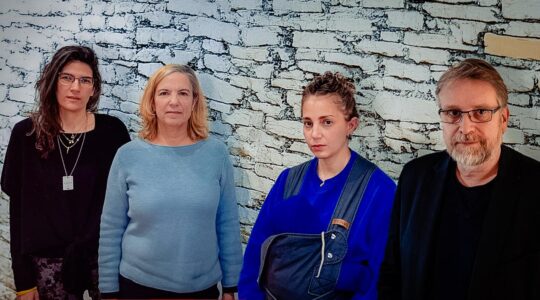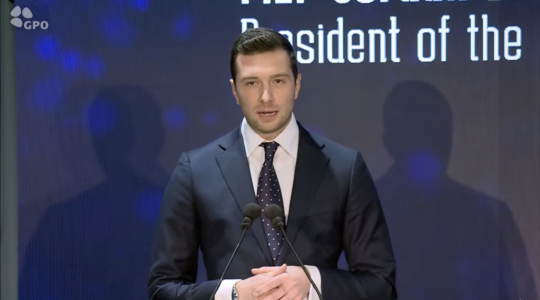(JTA) — The mother of a Jewish boy who said she took her son out of a Brussels public school because of anti-Semitic bullying filed a police complaint against the school’s management for alleged incitement to discrimination.
The complaint, first reported Tuesday by the RTBF broadcaster, concerns the school’s alleged inaction on reported abuse that, according to the pupil, went on earlier this year at a high school in Uccle, an affluent neighborhood. The mother said the bullying at the Athénée Royal Uccle 2 school forced her to enroll her son at a Jewish school last month.
The boy was identified only as Samuel (not his real name) and his mother as Helene.
According to the report, the abuse began after Samuel had a falling out with his former best friend, who was the only person at the school whom Samuel had told that he was Jewish. The friend told the rest of the class Samuel was Jewish and on Feb. 5, a classmate allegedly told Samuel “get lost, dirty Jew.” A fistfight ensued, ending without serious injury, according to Helene, who said the school treated the incident as a common brawl rather than racist harassment.
Over the following weeks, other pupils threatened Samuel and made anti-Semitic statements at him “two, three times each week,” said Helene, who added she specifically enrolled her son at a public school so that he would not have a parochial worldview that she feared would develop at a Jewish school.
In one incident, a pupil reportedly told Samuel: “If you’re in favor of Israel we’ll break your skull.” When Helene came to pick up Samuel from school on March 22 following terrorist attacks that killed 32 people that day in Brussels, she heard a pupil declare inside the school that the attacks were Israel’s fault, adding “Allah hu akbar,” an Arab-language religious expression which means “Allah is the greatest.”
She enrolled Samuel at a Jewish school two days later, citing the school’s “treatment of anti-Semitic abuse as though they were [neutral] taunts.”
The school’s administration declined to comment when approached for a reaction by RTBF, except to deny any failure to react to anti-Semitic speech. In its reply to RTBF, the administration indicated that its decision not to react owed to a desire not to stigmatize Muslims.
“In light of the current context of stigmatization of certain communities, especially after the March 22 attacks, it does not appear appropriate to return to this case, which has since been resolved,” the school said, adding that it held a day of talks encouraging tolerance for the students from Samuel’s age group.
Joel Rubinfeld, the president of the Belgian League Against Anti-Semitism, or LBCA, who studied the case, said the school’s actions meant that “the victim had to go away, the perpetrators – they got to stay.” He also noted the affluence of the Uccle neighborhood and that its schools have a better reputation than heavily Muslim schools in central Brussels, where few Jews would now enroll their children.
“There is no sanctuary for Jews in the public education system,” Rubinfeld said.
Samuel’s case is one of several recent incidents, including the online shaming last year by classmates of a pro-Israel high school student who also left the public education system for a Jewish school. These cases, Rubinfeld said last year, are turning Belgian schools into “Jew-free” zones.
JTA has documented Jewish history in real-time for over a century. Keep our journalism strong by joining us in supporting independent, award-winning reporting.





